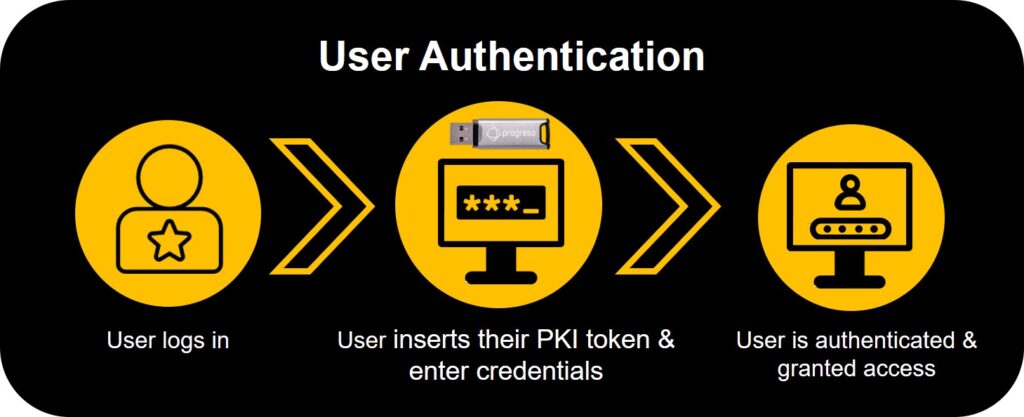A PKI (Public Key Infrastructure) authentication token is a device that is used to generate and store cryptographic keys and certificates used for authentication and secure communication.
PKI authentication tokens typically come in the form of a small USB or smart card device, and they contain a microprocessor that can perform cryptographic operations, such as generating public and private key pairs, encrypting and decrypting data, and signing digital documents.
When a user wants to authenticate themselves, they insert their PKI token into a computer or other device and enter their PIN or other authentication credentials. The device then uses the stored private key to sign a challenge message provided by the authentication system. The authentication system verifies the signature by using the corresponding public key, which is stored on the user’s certificate and available on a public directory. If the signature is valid, the user is authenticated and granted access to the system or service.

PKI authentication tokens provide a high level of security since they are designed to protect the private keys that are used for authentication and digital signing. They are often used in government, military, and other high-security environments, as well as in commercial applications such as online banking and e-commerce.
Interested in learning more about PKI authentication? Speak to Progreso team to discuss how you can achieve strong authentication.
